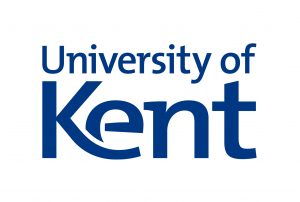Visit the Supervision section of the University’s Code of Practice for Quality Assurance for Research Programmes of Study: www.kent.ac.uk/teaching/qa/codes/research/documents/copr2020-annexh-supervision-v2.pdf
Main Supervisors are responsible for:
- Offering guidance on the student’s research project (in consultation with other members of the supervisory team).
- Advising the student of the respective roles and responsibilities of each of the members of the supervisory team.
- Ensuring that the student is aware of their responsibilities during the period of research.
- Scheduling regular meetings with the student and setting aside adequate time to discuss progress and future work. The minimum requirement is one formal meeting per month. (See section 6.2 for further explanation about meeting requirements.)
- Ensuring that students are introduced to all Divisional and University facilities which are relevant to their research.
- Making sure that students’ training needs (both subject-specific and transferable) are reviewed regularly through consideration of the skills audit and encouraging them to take up training opportunities.
- Ensuring that the particular needs of international students are taken fully into account during the early stages of research and to give help and advice on language problems and training where necessary.
- Advising students on academic matters including expected attendance, research standards, methodologies, academic writing, plagiarism, progression and examination.
- Approving a timetable of work and overseeing this to completion. Timely completion of research projects is expected by the University.
- Keeping the Divisional Director of Graduate Studies and PG Student Experience informed of any absences likely to impact upon time available for supervisory duties.
- Ensuring that students are made aware of inadequacy of progress or standards of work below that generally expected. This should be recorded formally in notes of supervisory meetings and progress reviews.
- Taking action to bring to the attention of the Supervisory Chair (where this is a different member of staff) and Divisional Director of Graduate Studies and PG Student Experience any concerns about a student’s unsatisfactory progress.
- Ensuring that there are clear records on the Student Data System of supervisory meetings and interactions with their students.
- Requesting written work as appropriate and returning such work with substantial constructive feedback within an agreed timetable.
- Participating in and preparing for student progress reviews as required by the Division and by this Code of Practice (see Annex J: Progression and Examination²).
- Advising students on the ethical implications of their research and appropriate routes for ethical approval where appropriate.
- Arranging, where appropriate, for students to make oral presentations about their work within the University and at conferences and to publish material from their research (ensuring proper credit is given for joint research).
- Recommending examiners for the student’s thesis to the Division in good time.
- In conjunction with the examiners where appropriate, providing advice to the student concerning the corrections and/or revisions required to the thesis following examination.
- Remaining familiar with and understanding the requirements of the Regulations for Research Courses of Study and the Code of Practice for the Quality Assurance of Research Courses of Study.
- Considering the safety implications of their students’ research.
Note: Supervisors are responsible for all aspects of safety which fall within their control and in particular for the safe conduct of experiments carried out in the course of their students’ research. Further information is available from the University Safety Officer.
Note: Where there is good cause, individuals from without the University may also act as a Main Supervisor

